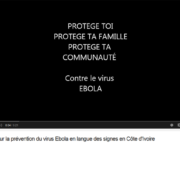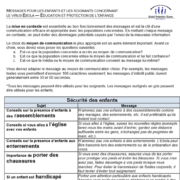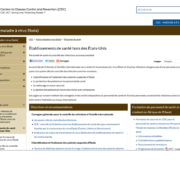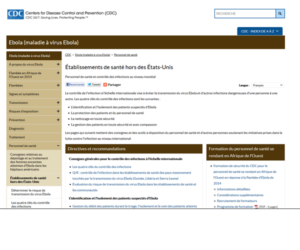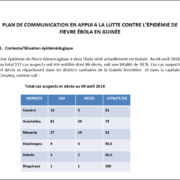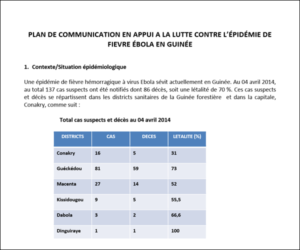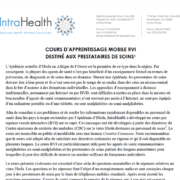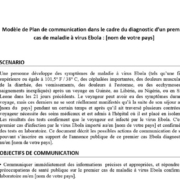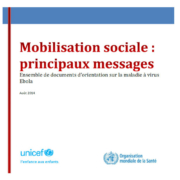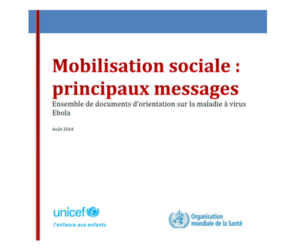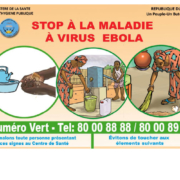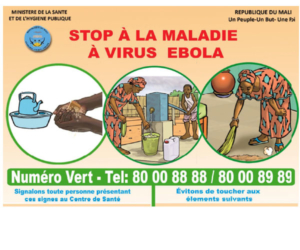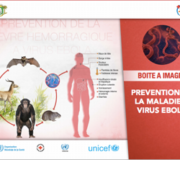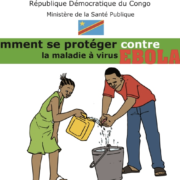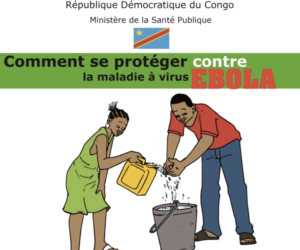Messages pour les enfants et les soignants concernant le virus Ebola (Français)
/in Messages Child Protection and Education Cluster Guinea Français Social Mobilization Children /by Nadia Berger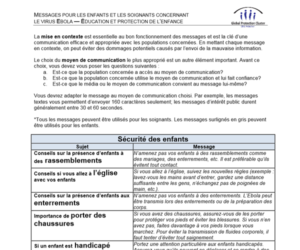 Voici une série de messages pour les enfants et les soignants concernant le virus Ebola traduits en Français par Translators without Borders. Ces messages peuvent être utilisés librement. Pour toute autre demande de traduction n’hésitez pas à contacter Translators without Borders.
Voici une série de messages pour les enfants et les soignants concernant le virus Ebola traduits en Français par Translators without Borders. Ces messages peuvent être utilisés librement. Pour toute autre demande de traduction n’hésitez pas à contacter Translators without Borders.
Messages pour les enfants et les soignants concernant le virus Ebola (Français)
Resource Type(s)
Topic(s)
Audience(s)
Language(s)
Country(ies)
Établissements de santé hors des États-Unis
/in Website CDC Global Français Prevention, Treatment Health Care Workers /by Marla Shaivitz | Health Communication Capacity CollaborativeResource Type(s)
Topic(s)
Audience(s)
Language(s)
Country(ies)
Source(s)
Plan de Communication pour Ebola en Guinée Conakry
/in Strategies and Plans UNICEF Guinea Français Planning /by Myriam DemsResource Type(s)
Topic(s)
Language(s)
Country(ies)
Source(s)
Ebola mLearning Course for Health Workers – French
/in Training IntraHealth International Global Français mLearning Health Care Workers /by Kim Martin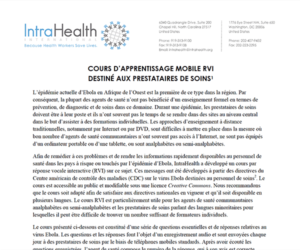 IntraHealth International has developed an Ebola Interactive Voice Response (IVR) course. These messages were developed based on the US CDC’s Ebola Guidelines for Health Workers[1]. The course is available for general use and modification under a creative commons license. We recommend that the course be adapted to meet national guidelines and language.
IntraHealth International has developed an Ebola Interactive Voice Response (IVR) course. These messages were developed based on the US CDC’s Ebola Guidelines for Health Workers[1]. The course is available for general use and modification under a creative commons license. We recommend that the course be adapted to meet national guidelines and language.
The IVR course is especially useful for illiterate or semi-literate community health workers and for health workers who speak minority languages for which it can be difficult to find sufficient numbers of qualified face-to-face trainers.
The course presented here is a series of essential Ebola questions and answers.
[line]Resource Type(s)
Topic(s)
Audience(s)
Language(s)
Country(ies)
Source(s)
Templated Plan for Announcing First Case of Confirmed Ebola
/in Strategies and Plans CDC Global Français Preparedness Leaders /by Callie Carmichael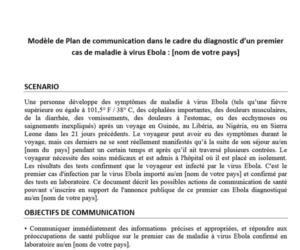 Templated Plan for Announcing First Case of Confirmed Ebola (French – PDF )
Templated Plan for Announcing First Case of Confirmed Ebola (French – PDF )
Templated Plan for Announcing First Case of Confirmed Ebola (French – Word Version)
Resource Type(s)
Topic(s)
Audience(s)
Language(s)
Country(ies)
Source(s)
Mobilasation sociale: principaux messages
/in Strategies and Plans Le Groupe Pivot Santé Population Mali Français Preparedness Leaders /by Marla Shaivitz | Health Communication Capacity CollaborativeResource Type(s)
Topic(s)
Audience(s)
Language(s)
Country(ies)
Source(s)
La Société Civile Contre La Maladie A Virus Ebola Au Mali
/in Poster Le Groupe Pivot Santé Population Mali Français Preparedness, Prevention General Public /by Marla Shaivitz | Health Communication Capacity CollaborativeResource Type(s)
Topic(s)
Audience(s)
Language(s)
Country(ies)
Source(s)
Boîte à images – Guide de l’animateur – Ebola
/in Training UNICEF, World Health Organization Côte d'Ivoire Français General Aid Workers /by Myriam Dems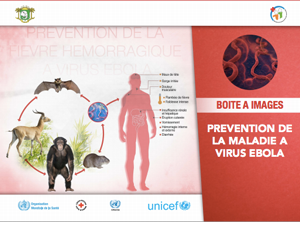 Guide détaillé, inculant illustrations, pour l’animateur d’une formation portant sur le thème de la maladie à virus ebola.*
Guide détaillé, inculant illustrations, pour l’animateur d’une formation portant sur le thème de la maladie à virus ebola.*
Version: Juin 2014.
Resource Type(s)
Topic(s)
Audience(s)
Language(s)
Country(ies)
Source(s)
Comment se protéger d’ebola?
/in Poster Ministère de la Santé Publique - République Démocratique du Congo Democratic Republic of the Congo Français Prevention /by Myriam DemsResource Type(s)
Topic(s)
Language(s)
Country(ies)

The Ebola Communication Network was originally developed by the Health Communication Capacity Collaborative (Cooperative Agreement #AID-OAA-A-12-00058) and expanded under Breakthrough ACTION (Cooperative Agreement #AID-OAA-A-17-00017) both under the leadership of Johns Hopkins Center for Communication Programs. This website is now maintained by Johns Hopkins Center for Communication Programs and its contents are the sole responsibility of CCP. The contents of this website do not necessarily reflect the views of USAID, the United States Government, or Johns Hopkins University.

